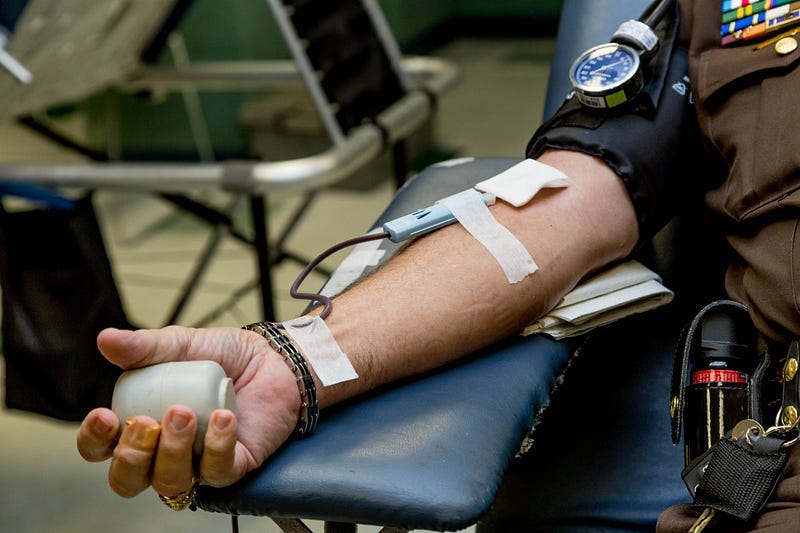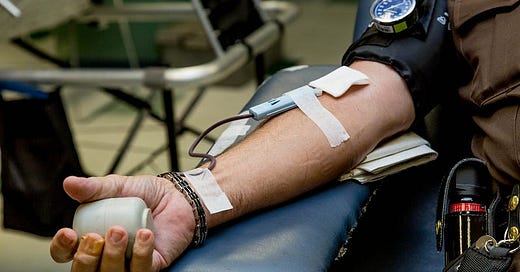It’s Not Salt, It’s Sugar!

Debunking the Myth and Unveiling the True Cause of Hypertension
When it comes to health and wellness, the topic of diet sparks endless debates. We’re bombarded with advice on what to eat and what to avoid, but one dietary dilemma that’s persisted for years revolves around salt and sugar. They say that salt is the bad guy, responsible for high blood pressure and a host of heart problems.
But emerging research is starting to suggest that sugar, not salt, might be the true villain lurking in the shadows. In this article, let’s unravel the myths surrounding salt and sugar, exploring why salt might not be as guilty as we thought and why sugar is, indeed, the primary suspect behind high blood pressure.
The Great Salt vs. Sugar Debate
Walk down the aisles of any grocery store, and you’ll find nutrition labels providing information on sugar content to help us make informed choices. High-sugar products are marked clearly, often containing 22.5 grams or more of total sugar per 100 grams, while low-sugar options have 5 grams or less per 100 grams. Many products even use a colour-coded system to signal sugar, salt, and fat levels — green and amber for the win, while red tells us to proceed with caution.
But now, I’ll address the elephant in the room — salt. For years, we’ve been told to cut back on salt intake to stave off hypertension and heart disease. Yet, recent research suggests that it’s not that simple. Hypertension and heart disease appear to be more closely connected to factors like obesity, insulin resistance, and high triglyceride levels, collectively known as Syndrome X. Excess salt, by itself, doesn’t seem to be the primary instigator.
The Sugar Connection
So, if salt isn’t solely to blame for these health issues, what’s the real culprit? The answer might just lie in our sugar consumption. Swapping out that sugary breakfast cereal for a less sugary alternative can significantly slash your weekly sugar intake — up to 70 grams, equivalent to 22 sugar cubes.
Surprisingly, even muesli, often considered a healthier option, can pack a punch with high levels of fat, added sugar, and sometimes salt. This underscores the crucial role that sugar plays in our diets and, consequently, our health.
Trimming down on carbohydrates, especially sugar, can be a game-changer when it comes to addressing high blood pressure and the underlying causes of Syndrome X.
Here’s why:
1. Burns Body Fat: Reducing carbohydrate intake prompts the body to tap into stored fat for energy, helping in weight loss and combating obesity — a significant contributor to hypertension.
2. Lowers Triglycerides: Excessive sugar consumption can lead to raised triglyceride levels, a risk factor for heart disease. Cutting back on carbs helps bring those triglycerides down.
3. Enhances Insulin Sensitivity: Overindulgence in sugar can lead to insulin resistance, a precursor to Type 2 diabetes. Reducing carb intake improves insulin sensitivity, lowering the risk of these conditions.
In summary
It’s time to re-evaluate the salt-sugar debate. While salt has been cast as the villain causing high blood pressure, the real threat may hide within sugar-laden diets. Research indicates that sugar, especially in the form of excessive carbohydrate intake, plays a more significant role in hypertension and heart disease than salt alone.
To combat these health concerns and tackle Syndrome X, it’s vital to cut back on carbohydrate (sugar) intake. This not only helps in shedding excess body fat, reducing triglycerides, and improving insulin sensitivity but also has a positive impact on blood pressure. In some cases, salt may even be necessary, particularly for individuals with high activity levels, as long as carbohydrate intake is well-controlled.
So, the next time you opt for that low-sugar cereal or decide to follow a sugar-restricted diet, remember that you’re taking a step in the right direction for your overall health. It’s time to shed light on sugar and acknowledge it as the true instigator of the hypertension epidemic.
Let’s make informed dietary choices and prioritize reducing sugar intake to safeguard our health and well-being. Your heart will undoubtedly thank you!
References:
DiNicolantonio, J. J., & Lucan, S. C. (2014). The wrong white crystals: not salt but sugar as aetiological in hypertension and cardiometabolic disease. Open Heart, 1(1), e000167.
Faraco, G., et al. (2019). High salt diet and hypertension: focus on the renin-angiotensin system. Frontiers in Physiology, 10, 1290.
Johnson, R. J., et al. (2007). Potential role of sugar (fructose) in the epidemic of hypertension, obesity, and the metabolic syndrome, diabetes, kidney disease, and cardiovascular disease. American Journal of Clinical Nutrition, 86(4), 899–906.
These studies delve into the relationship between sugar intake and various health issues, including hypertension, obesity, and cardiovascular diseases. They offer valuable insights into the potential adverse effects of excessive sugar consumption on overall health.




